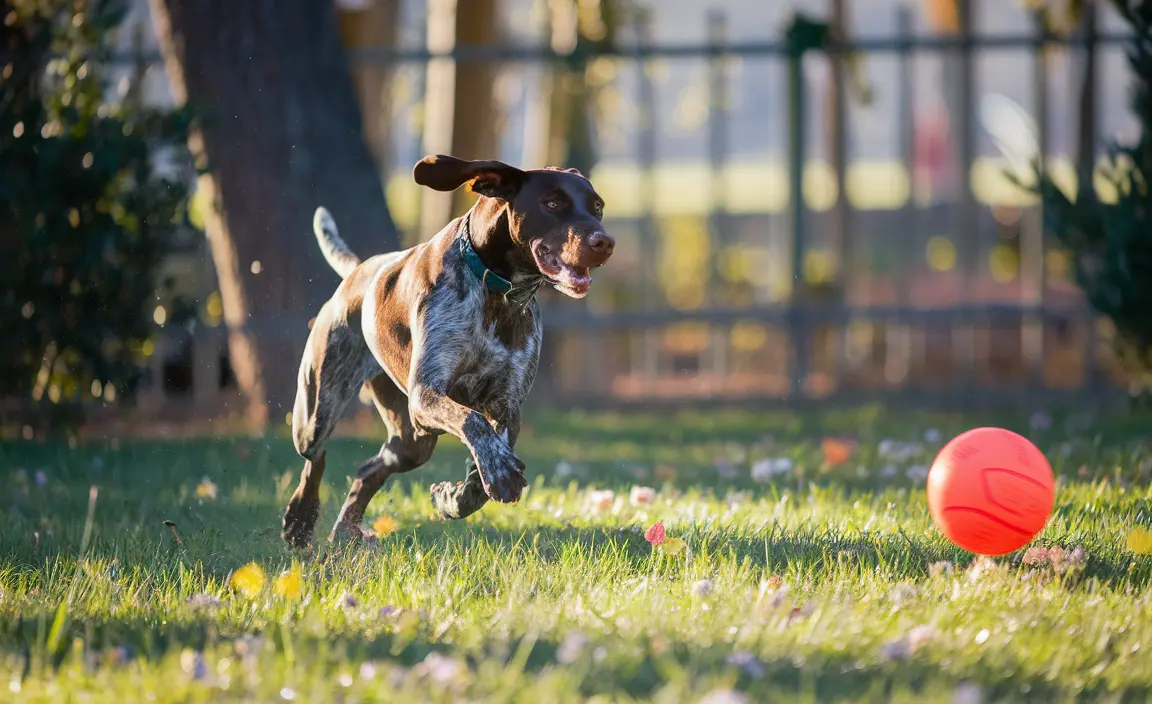If you're considering adding a dynamic and affectionate dog to your family, the German Shorthaired Pointer (GSP) might be the perfect breed for you. Known for their incredible energy, intelligence, and loyalty, these versatile dogs have captured the hearts of dog lovers worldwide. In this comprehensive guide, we'll explore the fascinating temperament and characteristics that make German Shorthaired Pointers such exceptional companions.
Whether you're an active family seeking an outdoor adventure partner or a hunting enthusiast looking for a versatile working dog, understanding the German Shorthaired Pointer temperament is crucial to determining if this breed aligns with your lifestyle and expectations.
Understanding the German Shorthaired Pointer Personality
A Blend of Energy and Affection
German Shorthaired Pointers are renowned for their extraordinary blend of high energy and deep affection. These dogs are not just pets; they're enthusiastic family members who thrive on interaction and engagement. Their friendly and outgoing nature means they quickly become integral parts of the household, forming strong bonds with their human companions.
Characterized by an inherent intelligence and eagerness to please, GSPs are typically quick learners. However, this doesn't mean they're always easy to manage. Their independent streak can challenge even experienced dog owners, requiring consistent training and patient guidance.
Loyalty and Protective Instincts
One of the most endearing traits of the German Shorthaired Pointer is their unwavering loyalty. These dogs are not just companions; they're dedicated protectors who form deep connections with their families. While generally sociable, they can be cautious around strangers, making them excellent watchdogs without being overly aggressive.
Exercise and Mental Stimulation Requirements
High-Energy Lifestyle Demands
Potential GSP owners must understand that these dogs are not for the sedentary lifestyle. They require extensive daily exercise and mental stimulation to remain happy and healthy. Activities like running, swimming, hiking, and participating in dog sports are not just recreational—they're essential for a German Shorthaired Pointer's well-being.
Without adequate physical and mental engagement, GSPs can quickly become destructive. Their pent-up energy might manifest through excessive barking, digging, or other unwanted behaviors. Ideally, they need owners who can commit to at least 1-2 hours of active exercise daily.
Training and Socialization
Early and consistent training is paramount for German Shorthaired Pointers. Their intelligence makes them receptive to learning, but they can also be stubborn. Positive reinforcement techniques, combined with firm and patient guidance, work best in channeling their energy and maintaining discipline.
Family and Pet Compatibility
Interactions with Children and Other Animals
German Shorthaired Pointers can be excellent family dogs, particularly with older children who can match their energy levels. However, their boisterous nature might be overwhelming for very young children. Supervision and teaching both the dog and children appropriate interaction boundaries are crucial.
When it comes to other pets, GSPs have a moderate success rate. While generally friendly with other dogs, their high prey drive means caution is needed around smaller animals like cats or birds. Early socialization and controlled introductions can help mitigate potential conflicts.
Considerations for Potential Owners
Who Should Adopt a German Shorthaired Pointer?
These dogs are best suited for active, experienced dog owners who can meet their substantial exercise and companionship needs. They're not recommended for first-time dog owners or families with limited time or outdoor space. A large, securely fenced yard and a commitment to daily activity are essential.
Frequently Asked Questions
What is the typical temperament of a German Shorthaired Pointer and how do they behave with family members?
German Shorthaired Pointers are friendly, loyal, and highly energetic. They form strong bonds with family members and are known for being affectionate and protective.
How much exercise and mental stimulation does a German Shorthaired Pointer need daily to stay happy and healthy?
They require 1-2 hours of vigorous daily exercise, including activities like running, swimming, and interactive play. Mental stimulation through training and dog sports is equally important.
Are German Shorthaired Pointers good with children and other pets in the household?
They're generally good with older children and can coexist with other pets if properly socialized. However, supervision is recommended, especially with small children or smaller animals.
What training challenges should I expect when raising a German Shorthaired Pointer, and how early should training start?
Early training is crucial. Expect challenges related to their high energy and occasional stubbornness. Consistent, positive reinforcement training should begin as early as possible.
Is a German Shorthaired Pointer suitable for first-time dog owners or families with small children?
Generally, no. They require experienced handling, extensive exercise, and may be too energetic for families with very young children.






